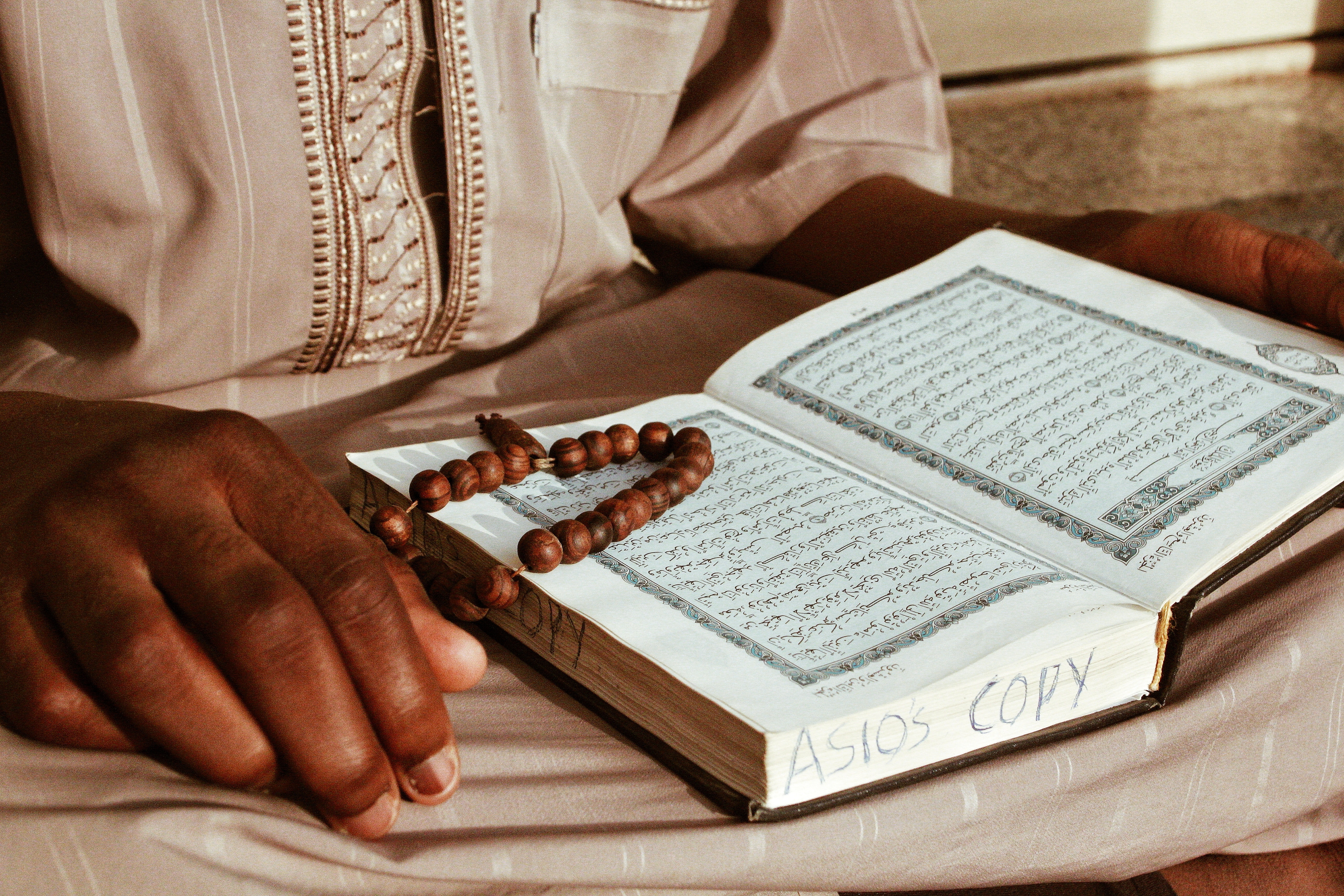Mindfulness has been around since a long time ago and can be traced back to Hindu yoga practices. It then developed and has been practice as meditation in Buddhism, advocated by the Vietnamese monk Thich Nhat Hanh. In 1979, Jon Kabat-Zinn, a student of Thich Nhat Hanh, introduced mindfulness from the scientific perspectives. He hosted his first Mindfulness-Based Stress Reduction (MBSR) program for eight weeks at the University of Massachusetts Medical Centre. The practice subsequently became popular and widely known in western society.
Mindfulness in Islam
Although mindfulness originated in Buddhism, this does not mean that it cannot be practiced by Muslims, as it has been proven to be very well practiced in Islam, even since the time of the prophet Muhammad S.A.W., when he meditated in the cave of Hira’ based on Surah Ar-Rad verse 28,
ٱلَّذِينَ ءَامَنُوا۟ وَتَطْمَئِنُّ قُلُوبُهُم بِذِكْرِ ٱللَّهِ ۗ أَلَا بِذِكْرِ ٱللَّهِ تَطْمَئِنُّ ٱلْقُلُوبُ
“Those who have believed and whose hearts are assured by the remembrance of Allah. Unquestionably, by the remembrance of Allah hearts are assured.” (Sahih International translation)
Mindfulness is the state in which a person is attentive or focused on what is happening at that very moment, without being distracted by anything else around them
Mindfulness means that a person explores their thoughts, their sensations, their breathing, and everything that is happening in that moment. It is a type of meditation that has been shown to be helpful in reducing stress, managing anxiety, reducing stage fright, overthinking, and having more energy and motivation to complete tasks. For some people who have trouble sleeping, meditation can help them sleep well, as the practice relaxes and creates a calm mind.
Mindfulness is about enjoying the moment
It is about enjoying every little thing we are doing in the present moment. When we practice mindfulness in our daily lives, we become kinder, more attentive, and more careful about what we do. We think more about the consequences of our words and actions. We think before we say something so we do not hurt others or ourselves.
We value kindness with mindfulness
When we practice mindfulness in our daily lives, we eventually stop judging others more than necessary, and we become kinder and more considerate of others. We think before we do something and before we say something to avoid negative consequences.
How to practice mindfulness?
It is simple and not time consuming. Some of the examples are breathing exercises, walking meditation and sitting meditation. Breathing the right way and focusing attention solely on breathing can relax the mind and get rid of negative feelings or thoughts. You can do the sitting or walking meditation, whichever you prefer, and get comfortable before you start to ensure effectiveness. Mindfulness is not just about meditation, but also about noticing our body sensation. For example, when we hold the phone in our hand. How does our hand feel? Is it warm or do our fingers get numb from all the typing and scrolling? When we think about the sensations, we become aware of what is happening to us and our surroundings. For example, have you ever stopped in the middle of the rain just to feel the sensation of the wetness and the coldness of the rain on our skin?
Islamic mindfulness activities
In Islam, prayer (solat) is also a form of mindfulness activity. Prayer enables us to submit to the worship of the Almighty. Muslims focus on fulfilling the divine command during solat as we focus on following the rules (rukun) during solat and not violating them. We put all our attention, body and soul as it is an act between us and Almighty Allah S.W.T. In addition to solat, dzikir and reciting the Quran are also part of the form of expressing mindfulness, as the mind being aware of Allah’s awareness on our thoughts, actions, and feelings. Reading and reciting the Quran is a form for Muslims to show their gratitude to the Creator while constantly seeking rahmah and reward. It shows that Muslims believe that Allah is always watching over them and know what is going on in their hearts. It brings them peace of mind and a sense of security and comfort.

Mindfulness is valued in modern society because people want to escape from all the hassles and hustle of life.
It teaches people to be more disciplined and purposeful to achieve their goal or dream while having time to relax and unwind. In the era of digital age, people are either busy with their work live or obsessed with internet and social media. Some people have become preoccupied with both, resulting in less and less face-to-face communication and less and less free time to spend with family or friends. Mindfulness can take a little bit of their time for them to be in the present and think about things that are good for them and their mental health. It is important to stay in touch with your feelings and thoughts, no matter how busy you are. This is because feelings and emotions can influence the way someone spends and goes through their daily life.









